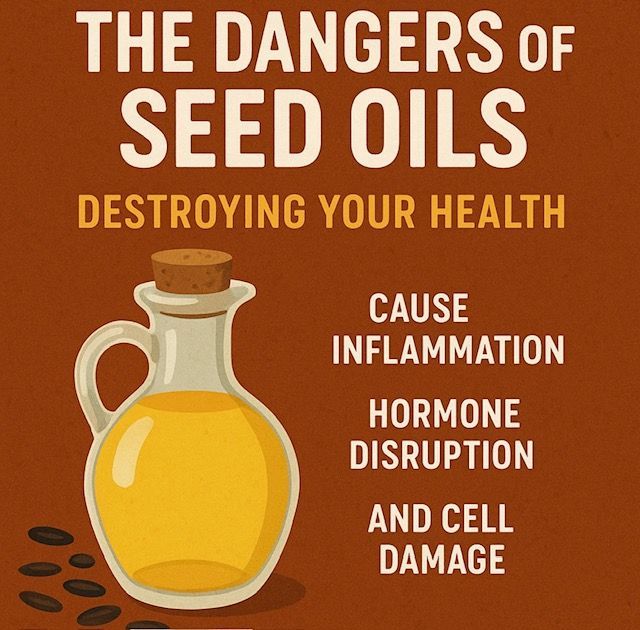The Silent Saboteurs in Your Kitchen: Why Seed Oils Are Destroying Your Health
Seed oils like canola, soybean, and corn oil are marketed as “heart healthy.” Here’s what they’re really doing to your body.
When Healthy Isn’t Really Healthy
You’ve probably heard the phrase “heart healthy oils” tossed around in commercials, food packaging, and doctor’s offices. Maybe you’ve even swapped out butter for canola oil or drizzled soybean oil over your veggies thinking you were making the smart choice.
But what if I told you those so-called healthy oils are doing the exact opposite?
My Turning Point with Seed Oils
Years ago, I was deep into the cycle tired, inflamed, and foggy-headed. I was eating clean (or so I thought), but my body felt anything but clean. It wasn’t until I took a deeper look at my pantry and my inflammation markers that I realized the problem. My food was loaded with industrial seed oils. Once I cut them out and supported my detox pathways, everything started to shift.
The Root Cause: Oxidative Stress and Inflammation
Here’s the truth most people don’t want to hear:
Seed oils are chemically unstable. When they’re processed (which they always are), they oxidize. When you eat oxidized oils, you invite chronic inflammation, gut lining damage, hormone disruption, and cellular stress.
Most people don’t realize these oils are:
- Heavily processed with heat and solvents
- Stripped of any original nutritional value
- High in omega-6 fats that throw off your body’s balance
- Linked to metabolic dysfunction, heart disease, and even cancer
It’s not about eating less fat it’s about eating the right kind of fat.
What Most People Get Wrong
They swap out butter and animal fats for seed oils thinking they’re upgrading. But here’s the problem:
- Canola, soybean, safflower, corn, cottonseed, grapeseed, and sunflower oils aren’t natural—they’re industrial byproducts.
- These oils are often hidden in “health foods,” protein bars, vegan dressings, gluten-free snacks, and restaurant meals.
- Their shelf stability makes them cheap and convenient for companies, but costly for your health.
Here’s What I Do Differently
As a Functional Healing Practitioner, I teach my clients to look beyond the label. We reverse-engineer chronic symptoms like fatigue, stubborn weight, joint pain, and brain fog not by removing just one thing, but by eliminating toxic triggers at the root.
Removing seed oils is one of the lowest-hanging fruits in any healing plan.
We replace them with nourishing fats your body actually recognizes like grass-fed tallow, pastured butter, coconut oil, and olive oil (real olive oil).
Final Takeaway
If you’re still cooking with seed oils or eating them unknowingly, you’re fighting your healing process. Your hormones, your cells, and your gut are begging for a break.
You don’t have to be perfect. But you do need to be aware.
And if you’re not sure where to start or what’s keeping you inflamed, let’s talk.
Book your free 15-minute call at www.ExecutiveFunctionalHealing.com

